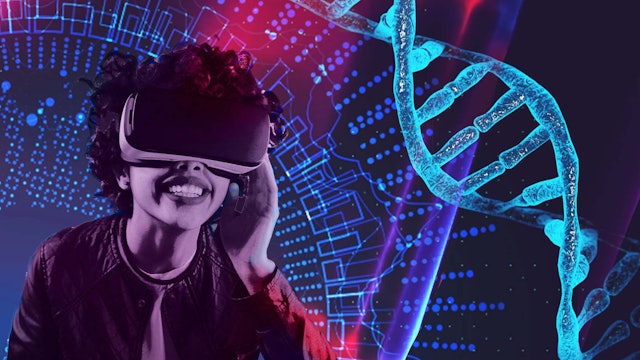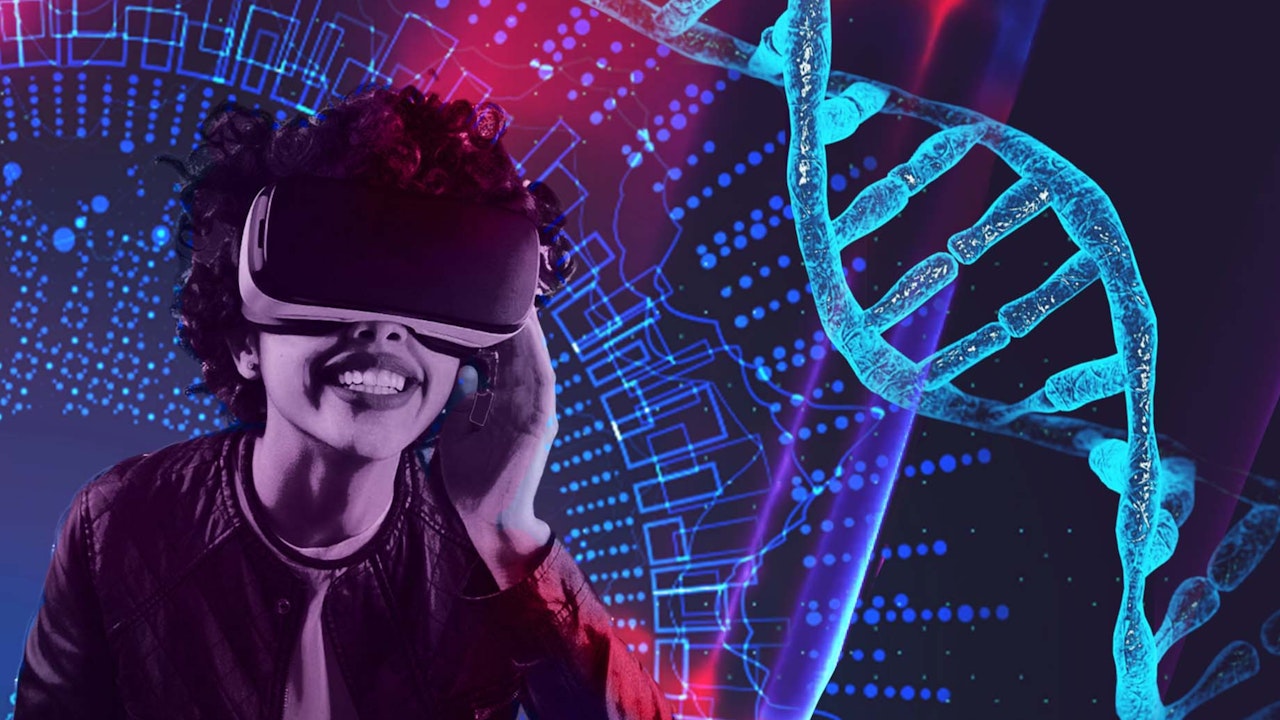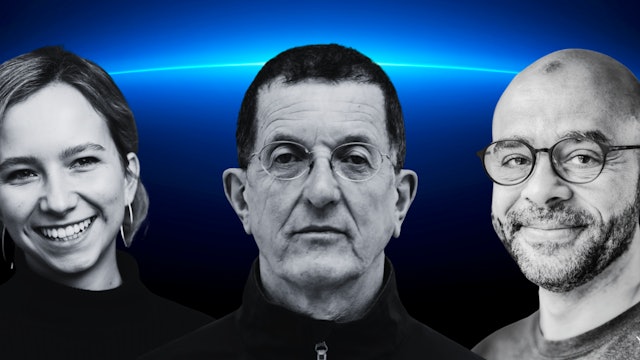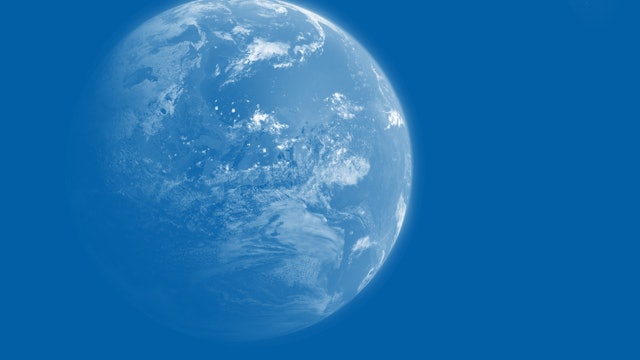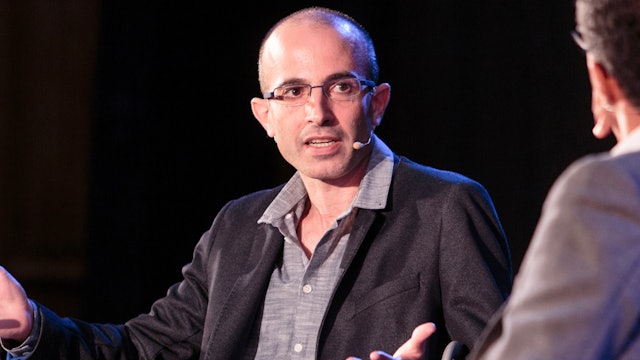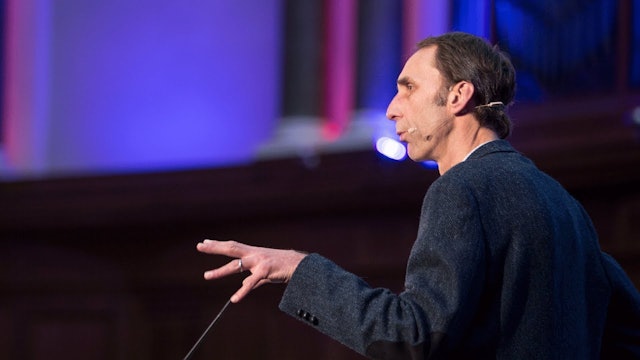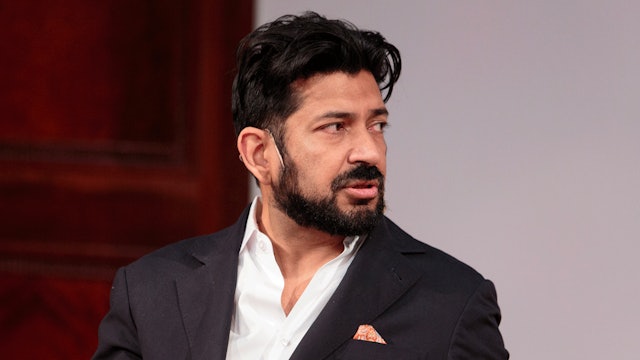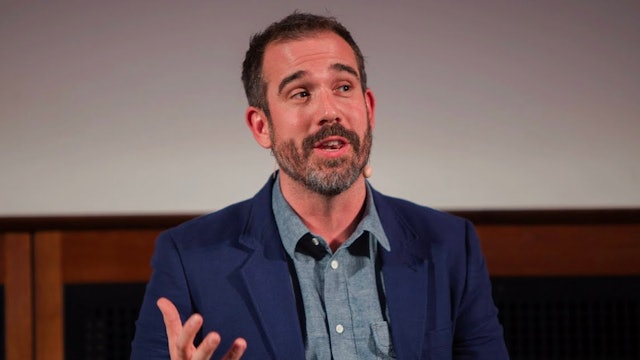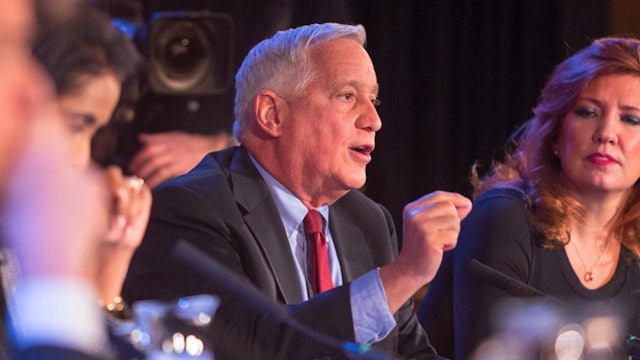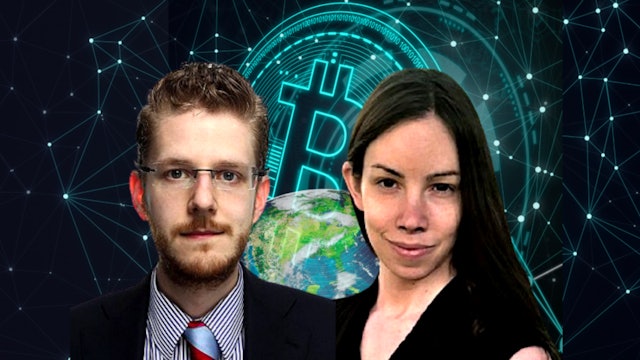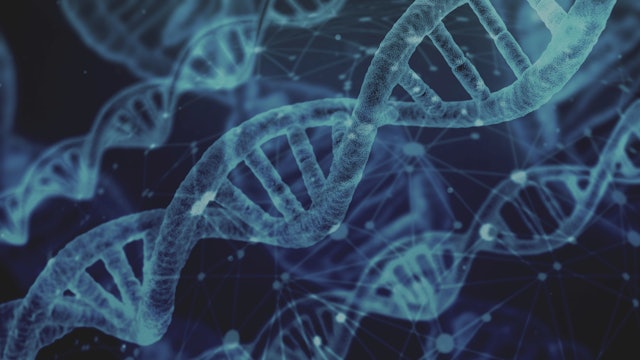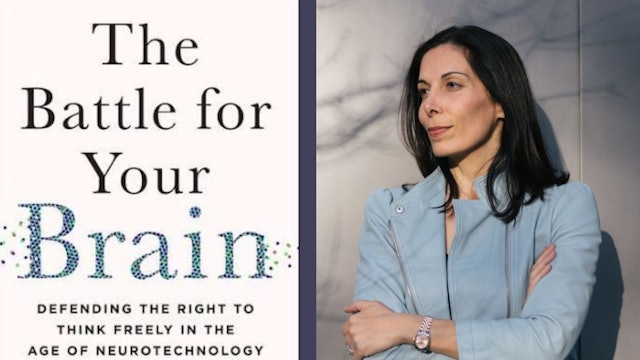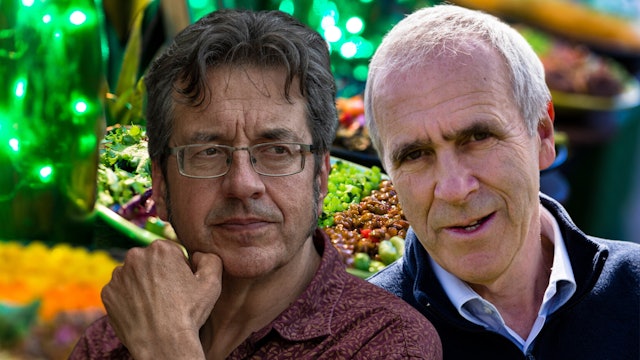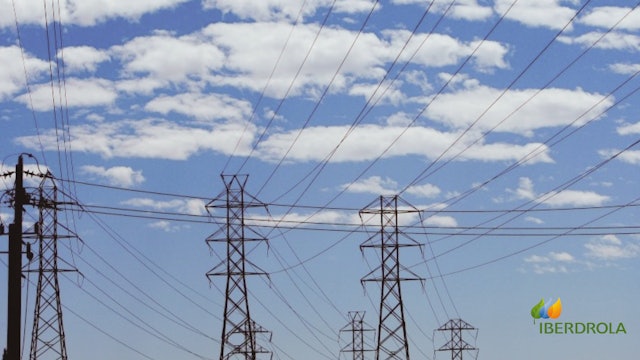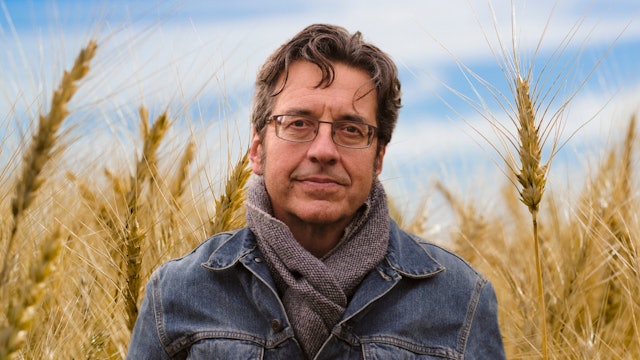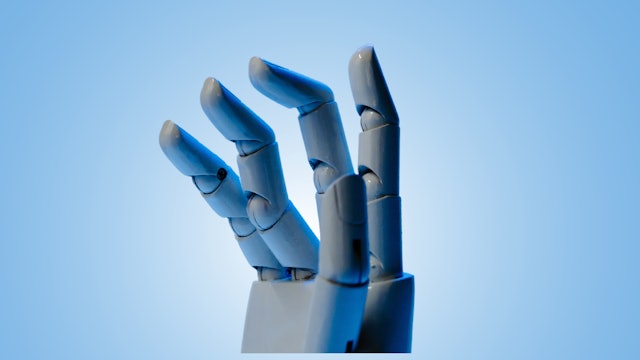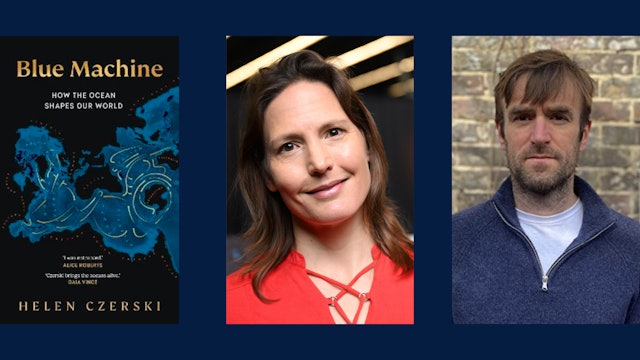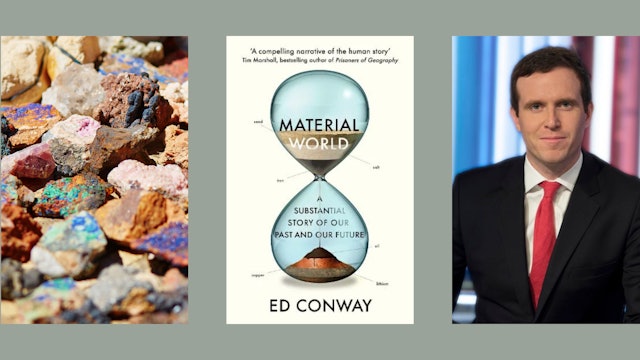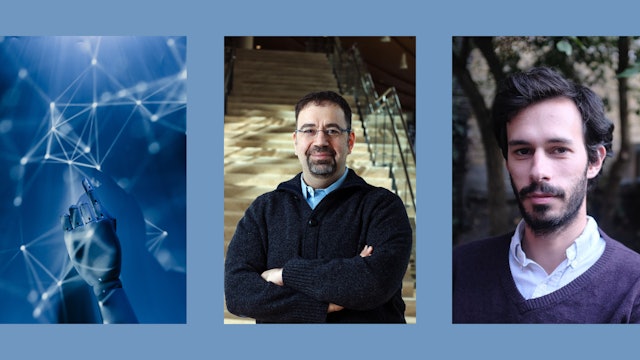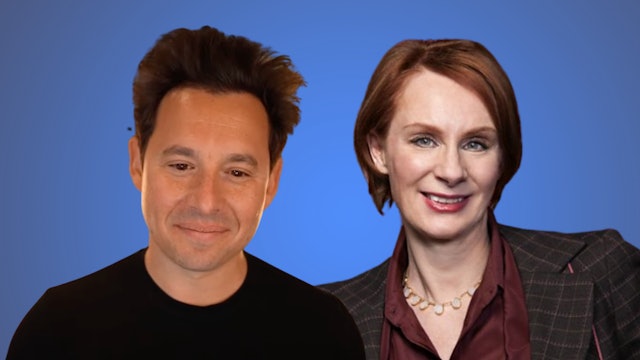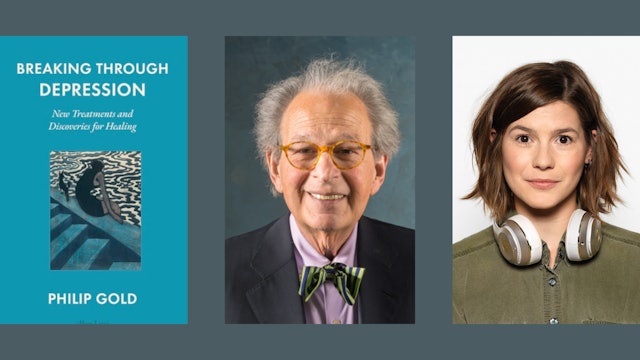-
Debate: The World Will Be a Better Place in 5, 50 and 500 years
In the very first event in The Futureverse series, in partnership with Y TREE, we were joined by Sir Antony Gormley, futurist and entrepreneur Mo Gawdat and climate activist Clover Hogan to debate the motion: the world will be a better place in 5, 50, 500 years. We explored the future of art and ...
-
What is happening between now and 2030 to achieve net zero?
Part of The Great Energy Transition series, in partnership with Cummins.
To halt global warming and save the planet, there’s no two ways about it – we need to reduce greenhouse gas emissions. In fact, we need to reach net zero – the point at which the total amount of greenhouse emissions release...
-
Yuval Noah Harari on the Rise of Homo Deus
Yuval Noah Harari is the star historian who shot to fame with his international bestseller Sapiens: A Brief History of Humankind. In that book Harari explained how human values have been continually shifting since our earliest beginnings: once we placed gods at the centre of the universe; then ca...
-
Debate: We've Overdosed
Drug pushers. We tend to associate them with the bleak underworld of criminality. But some would argue that there’s another class of drug pushers, just as unscrupulous, who work in the highly respectable fields of psychiatry and the pharmaceutical industry. And they deserve the same moral scrutin...
-
Incels and the Men Radicalised to Hate Women
According to Laura Bates a vast network of incels and other misogynists are able to operate, virtually undetected online. These extremists commit deliberate terrorist acts against women. Vulnerable teenage boys are groomed and radicalised.
In this episode Bates, the bestselling author and founde...
-
The Gene Unlocking the Human Code, with Siddhartha Mukherjee
-
The Bittersweet Truth About What We Eat
What should we be eating to live a long and healthy life?
How is it that some people can eat absolutely anything and stay slim, while others on a ‘healthy’ diet get fat?
Why is it that Cubans are much healthier than Americans, despite eating on average twice the amount of sugar?
To unpack the ...
-
The robots are coming and they will destroy our livelihoods
They are coming to an office near you: job-gobbling robots that can do your work better and more cheaply than you can. One in three jobs could be taken over by a computer or a robot in the next 20 years. Most at risk are less skilled workers such as machine operators, postmen, care workers and pr...
-
Crypto vs The Environment, with Lyn Alden and Alex De Vries
The global bitcoin network currently consumes about 110 terawatt-hours of electricity annually through mining, roughly equal to what is consumed by the nation of Argentina. That statistic sounds frightening but is it? A historical study from Our World in Data found that of the greatest contributi...
-
What is the role of corporations in the energy transition?
Do corporations lead or do they follow? Do they push government or do they work within whatever legal frameworks are of the day?
Of course, they do all of the above. They always have. And in the process they have been crucial cogs of progress – much of it good, but not all. That is now changing....
-
Debunking the False Promises of the Wellness Industry with Rina Raphael
Juicing, biohacking, mindfulness apps, collagen supplements: the wellness industry has exploded into a $4.4 trillion movement. On January 12 wellness industry journalist Rina Raphael comes to Intelligence Squared to argue that the self-care movement has taken sound ideas about nutrition and fitne...
-
The Future of Being Human: Is gene editing the next great health revolution?
Ever since the discovery of DNA scientists have been on a quest to understand the secrets of the human genome. This quest has not only involved analysing the role genes play in making us who we are – the history of genetics has also been shaped by a desire to explore how far our genes can be alte...
-
The Battle for Your Brain, with Nita Farahany
Imagine a world where people who suffer from epilepsy receive alerts moments before a seizure, where the average person can peer into their own mind to eliminate painful memories and we can easily cure addictions. This is also a world where your brain could be interrogated to learn your political...
-
Race, Reproduction and the Dangers of Eugenics
The eugenics movement emerged in the late 19th century, promoting the theory that the human race could be improved by the selection of desirable heritable characteristics. The term was coined by Francis Galton in 1883 and the idea was initially embraced in Britain and the United States by philoso...
-
Debate: We Should All Go Vegan
From the McDonald’s McPlant made with a Beyond Meat® patty to Sheese Dairy-Free Cheddar Style, there is a plant-based alternative for almost every food you can think of, making it easier than ever before to go vegan. No wonder the number of people in the UK following a plant-based diet has risen ...
-
Rethinking the Grid
‘There is no transition without transmission.’ This phrase has been echoed by energy experts and politicians across the world. But what does it mean? It seems as if the renewable energy transition is unfolding smoothly. Globally renewable energy generation is predicted to increase five-fold by 20...
-
George Monbiot on the New Food Revolution
We need a food revolution – one that will transform the face of the planet and our relationship with it. That will be George Monbiot’s rallying cry when he came to Intelligence Squared to talk about the themes of his major new book 'Regenesis: Feeding the World without Devouring the Planet'.
As...
-
Artificial Intelligence, Virtual Worlds and the Mystery of Consciousness
Over the last year, AI has been advancing at unprecedented speed. Tools like ChatGPT are taking the drudgery out of many of our everyday activities and creating exciting possibilities. But alarm bells are ringing. As we become increasingly unable to differentiate between the virtual and the real,...
-
How the Ocean Shapes Our World, with Helen Czerski and Tom Whipple
To understand the world you need to understand the ocean. That’s the argument of physicist Helen Czerski who has long studied the complex ecosystems and forces that drive the ‘blue machine’ which covers 71% of our planet. On Monday June 5, Czerski comes to Intelligence Squared to discuss what we ...
-
Substance Use: The Miraculous Story of Humanity's Building Blocks
There are six crucial substances in human history: sand, iron, salt, oil, copper and lithium. They took us from the Dark Ages to the present day. They build our homes and offices, power our computers and phones, and create life-saving medicines. But most of us take them completely for granted.
I...
-
Wasteland: The Dirty Truth About What We Throw Away
When we throw things ‘away’, what does that actually mean? Where does it go, and who deals with it when it gets there? Award-winning journalist Oliver Franklin-Wallis has spent the last number of years investigating the global waste industry. On June 27 he comes to Intelligence Squared to tell us...
-
The Battle For Control of AI with Daron Acemoglu and Carl Miller
If you look back over a thousand years of human history, one undeniable truth emerges: progress is not inevitable but hinges on the choices society makes regarding technology.
In the Middle Ages, agricultural advancements enriched the nobility and the Church, which used the wealth generated to...
-
Black Friday, Shopify and Entrepreneurship in the Digital Age
Harley Finkelstein, President of Shopify, joins Intelligence Squared to discuss Black Friday and the changing landscape of business in the digital age. He speaks to Anne McElvoy, executive editor at The Economist, about new trends such as the rise of the creator economy and how platforms like Sho...
-
The New Science of Depression, with Philip Gold
We are often told that depression is ‘all in the mind’. So why are so many of its symptoms felt in our bodies? Why can depression have such a profound impact on physical as well as mental health – from coronary disease to stroke? On August 23 Philip Gold, a world-renowned expert on this devastati...

